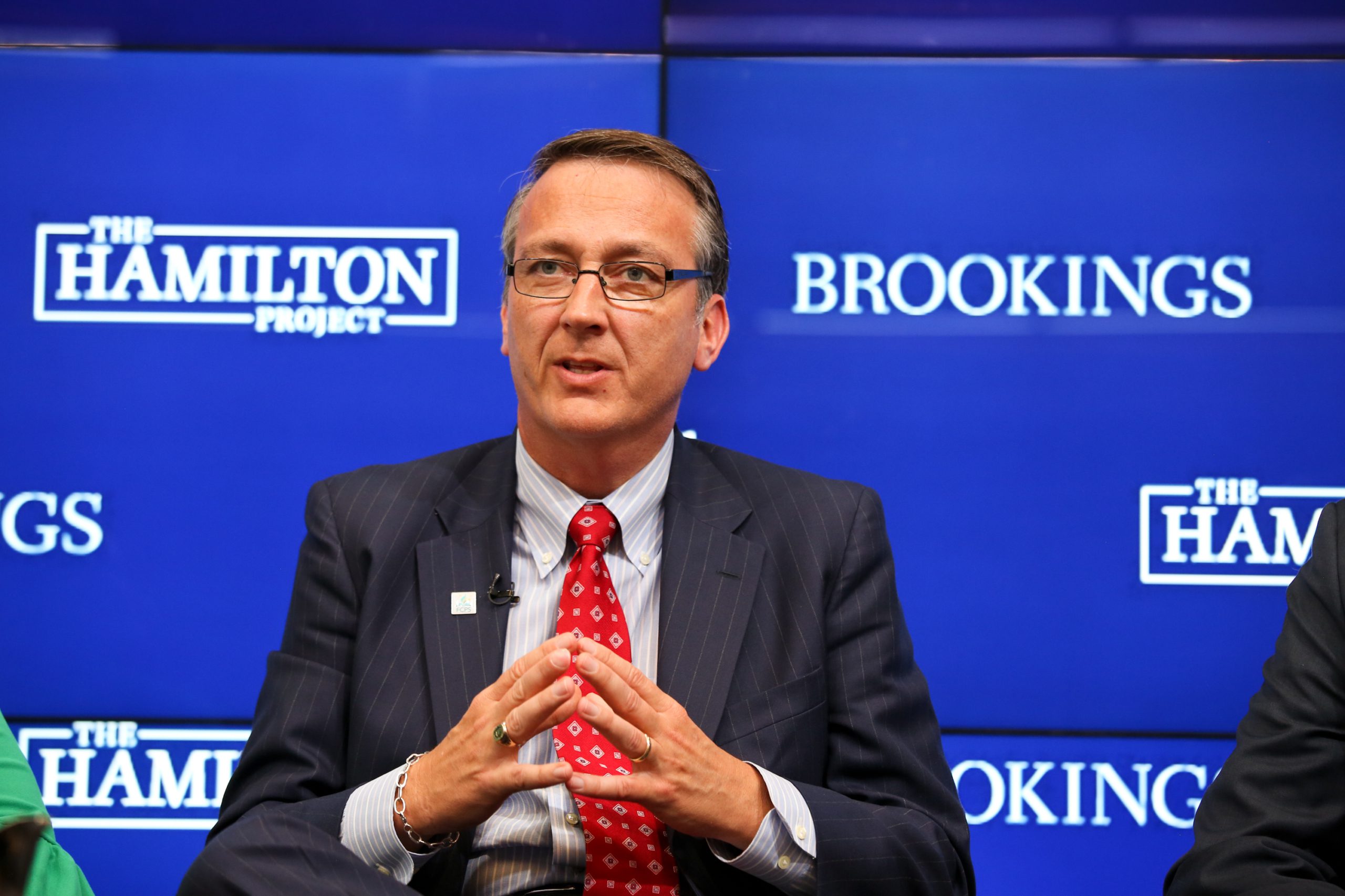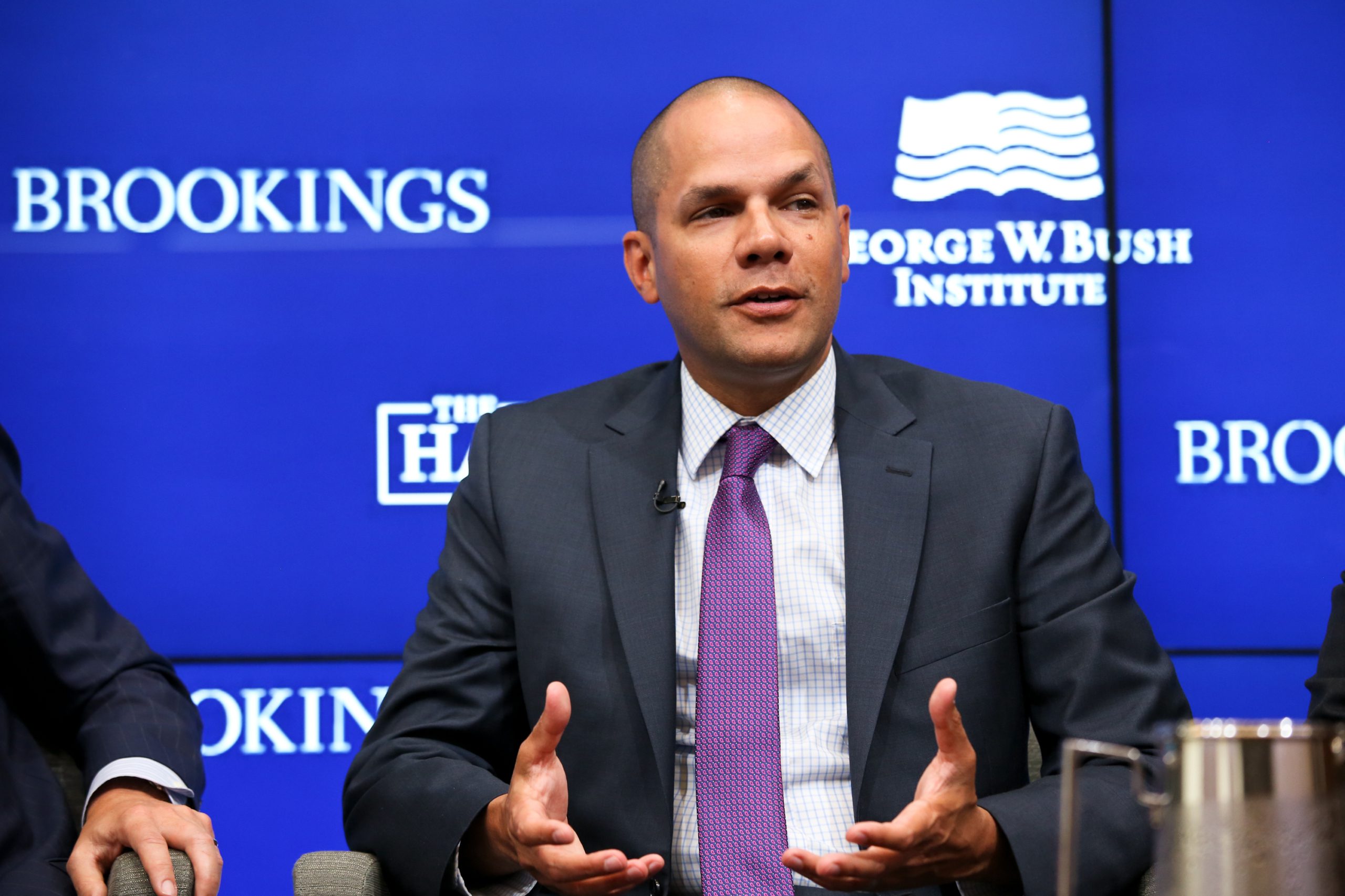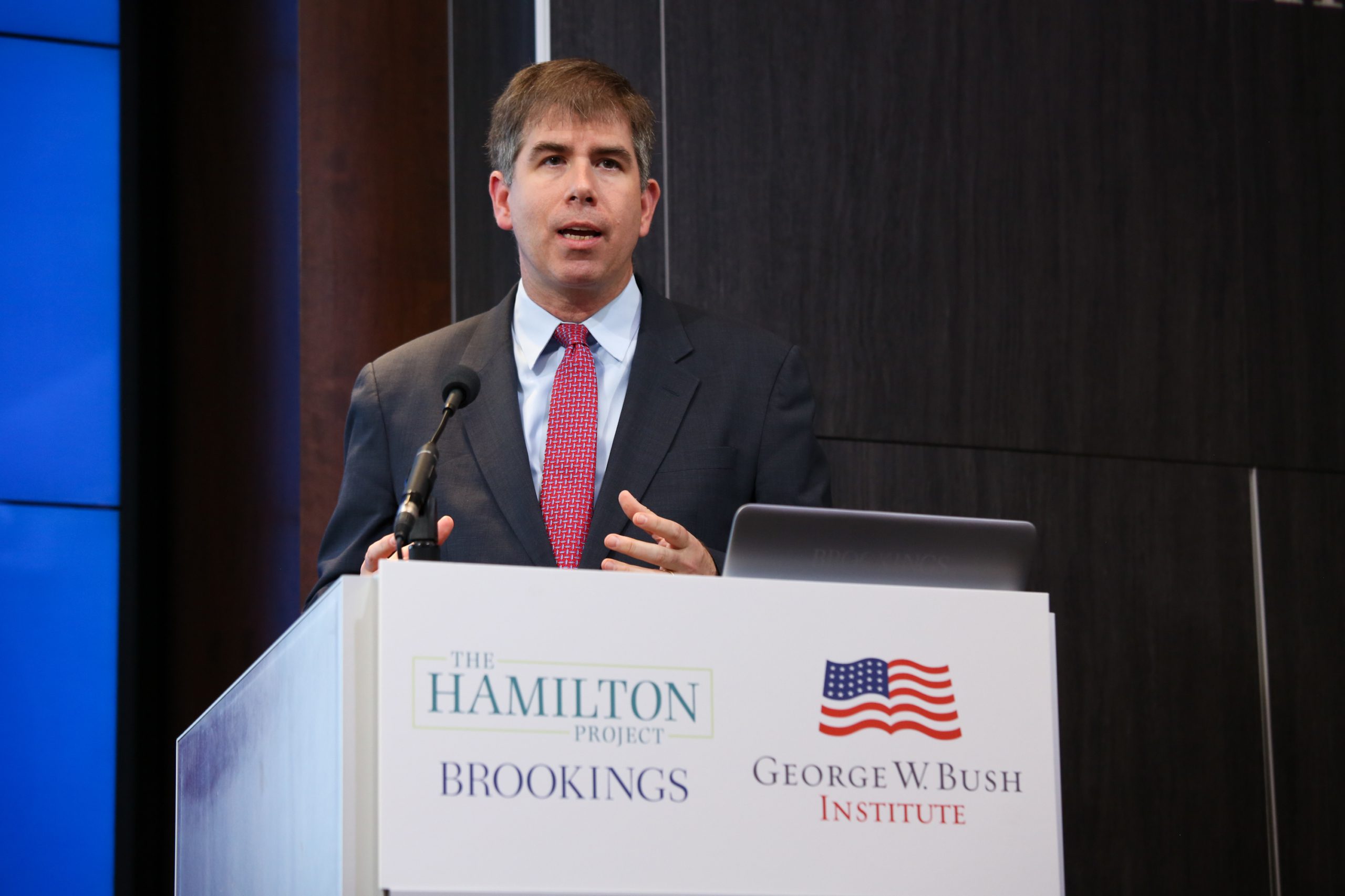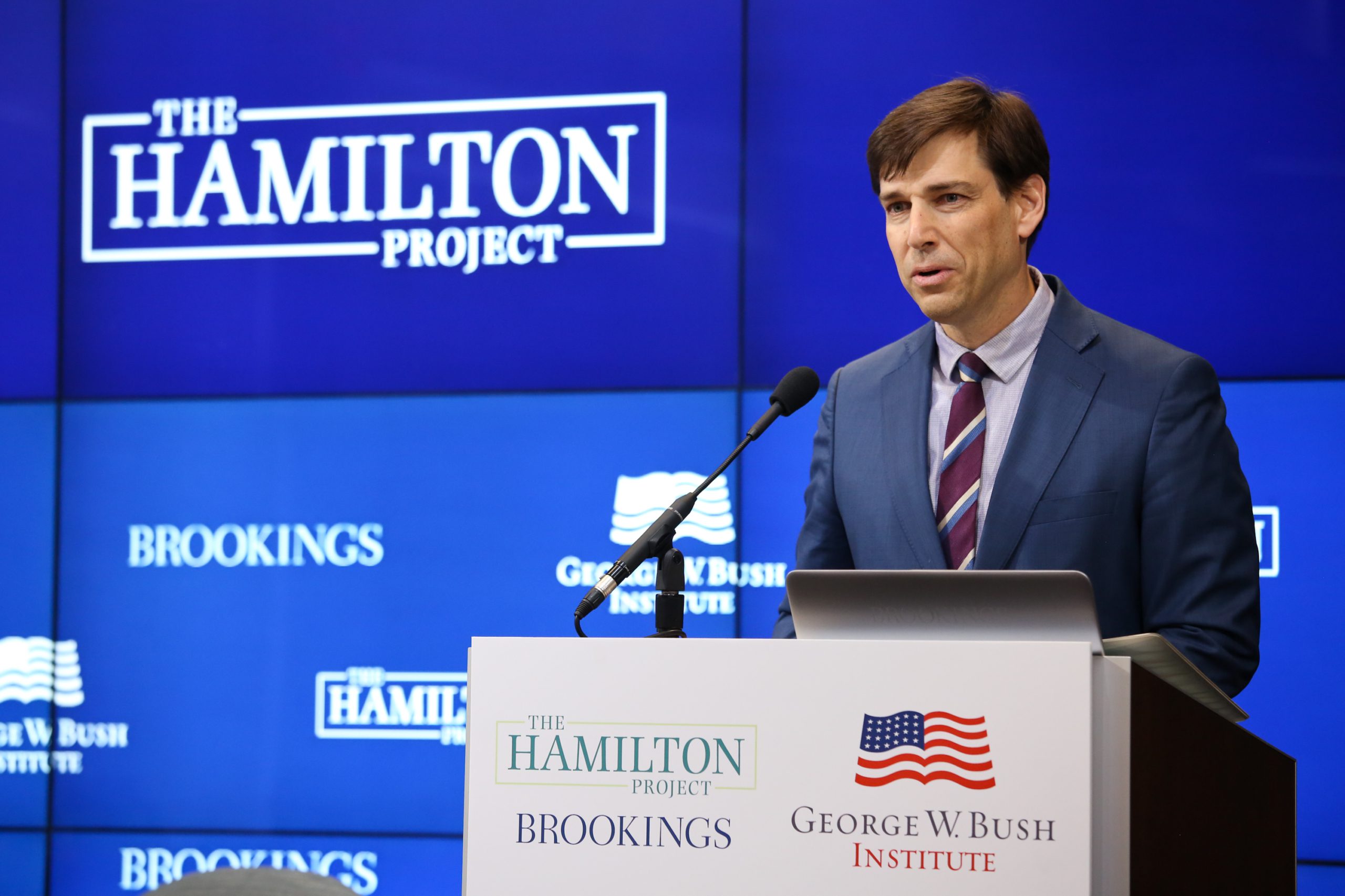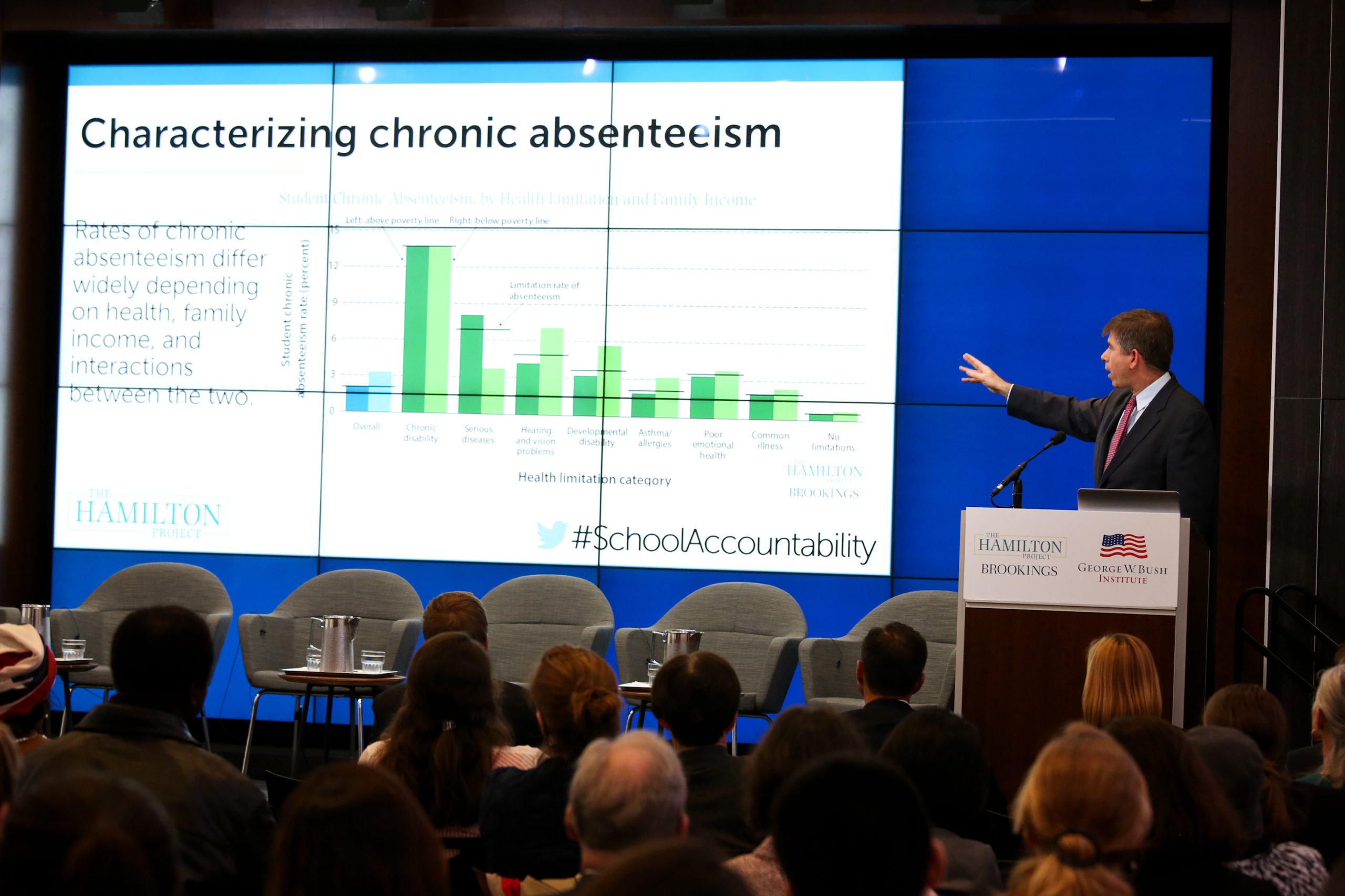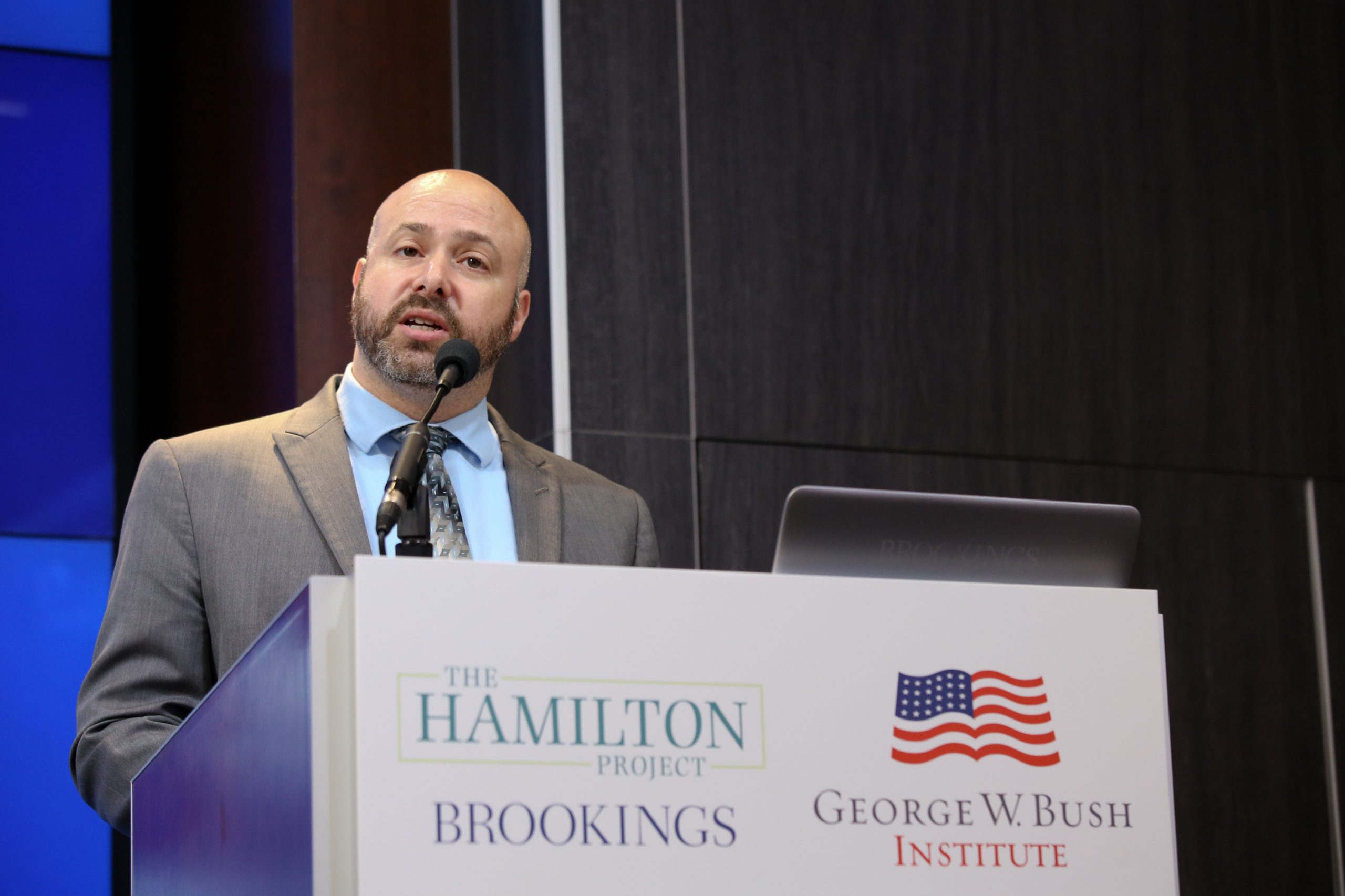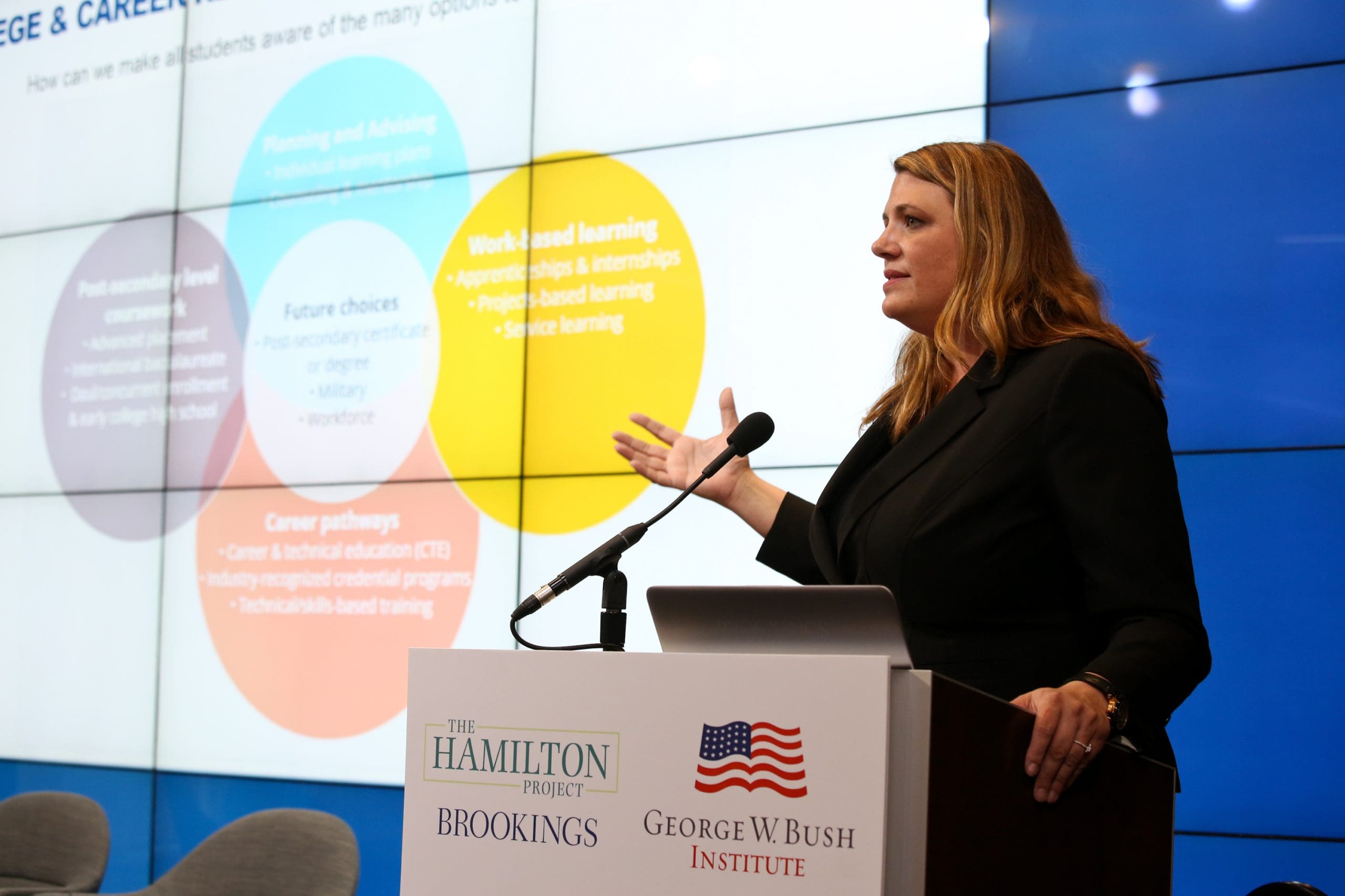
A quality education for all students is a prerequisite for an economy that increases opportunity, prosperity, and broadly shared growth. School accountability policies, in which school performance is evaluated based on clear metrics, have developed over the past few decades as a strategy central to assessing and achieving progress toward this goal. The new federal education law—the Every Student Succeeds Act—changes the national accountability structure established by No Child Left Behind, empowering states to design and implement state-wide accountability systems. In addition to test-based metrics and graduation rates, ESSA required states to hold schools accountable for a least one other measure of “school quality or student success.”
On April 25, The Hamilton Project at the Brookings Institution and the George W. Bush Institute co-hosted a forum to explore whether broadening the scope of school accountability under the Every Student Succeeds Act would spur states and schools toward improving school quality and student achievement. The forum featured framing remarks by Jason Botel, Principal Deputy Assistant Secretary, Delegated Duties of the Assistant Secretary of Elementary and Secondary Education, U.S. Department of Education, and a roundtable discussion with: Scott Brabrand, superintendent, Fairfax County Public Schools, Virginia; Ajit Gopalakrishnan, chief performance officer, State Department of Education, Connecticut; Sandra Diodonet, assistant superintendent, Paterson School District, New Jersey; Broderick Johnson, chair, My Brother’s Keeper Alliance, Obama Foundation; and Javaid E. Siddiqi, president and CEO, The Hunt Institute. Alyson Klein, assistant editor, Education Week moderated the roundtable.
The event also included introductory remarks by Brookings Executive Vice President and Vice President and Director of Economic Studies Ted Gayer, and research presentations from Jay Shambaugh, director, The Hamilton Project, senior fellow, Economic Studies, The Brookings Institution and Anne Wicks, director, Education Reform, George W. Bush Institute.
The event coincided with the release of a new Hamilton Project strategy paper on ESSA implementation, offering states an actionable framework for reducing rates of chronic absenteeism. It also highlighted the George W. Bush Institute’s recent work in accountability including The A Word series, and two new spotlight sections of the State of Our Cities tool, which offers comparable education data profiles of major U.S. cities. The new spotlights on chronic absenteeism and college and career readiness synthesize research and data and provide strategies for city leaders to confront new challenges related to school accountability.
Agenda
1:00 PM Registration Opens
1:30 PM Welcome and Introduction
Ted Gayer
Executive Vice President
Vice President and Director, Economic Studies
The Joseph A. Pechman Senior Fellow, Economic Studies
The Brookings Institution
1:40 PM Framing Remarks
Jason Botel
Principal Deputy Assistant Secretary
Delegated Duties of the Assistant Secretary of Elementary and Secondary Education
U.S. Department of Education
1:55 PM Presentation of Research
Jay Shambaugh
Director, The Hamilton Project
Senior Fellow, Economic Studies
The Brookings Institution
Anne Wicks
Director, Education Reform
George W. Bush Institute
2:15 PM Roundtable: Making Progress on Quality Across States and in Schools
Scott Brabrand
Superintendent
Fairfax County Public Schools, Virginia
Sandra Diodonet
Assistant Superintendent
Paterson School District, New Jersey
Ajit Gopalakrishnan
Chief Performance Officer, Department of Education
State Department of Education, Connecticut
Broderick Johnson
Chair, My Brother’s Keeper Alliance
Obama Foundation
Javaid E. Siddiqi
President and CEO
The Hunt Institute
Moderator: Alyson Klein
Assistant Editor
Education Week




